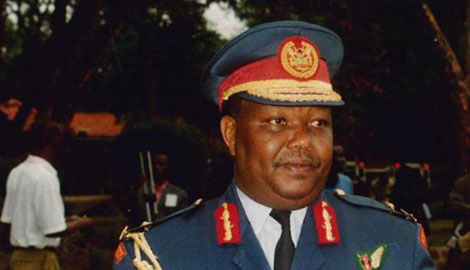 |
| Chief of Defence Forces Julius Karangi PHOTO: COURTESY |
Kenya: Wrangles between Chief of the Defence Forces Gen Julius Karangi and immediate former Intelligence boss Maj-Gen Michael Gichangi are one of the major reasons that made the spy chief quit, The Standard on Saturday has learnt.
Also understood to have played a big role is the on-going cases at the International Criminal Court in which the National Intelligence Service (NIS) is believed to have played a crucial role during its submissions to the Waki Commission -- and the consequent submission of those documents to the ICC -- where President Uhuru Kenyatta and his deputy William Ruto are facing trial for crimes against humanity.